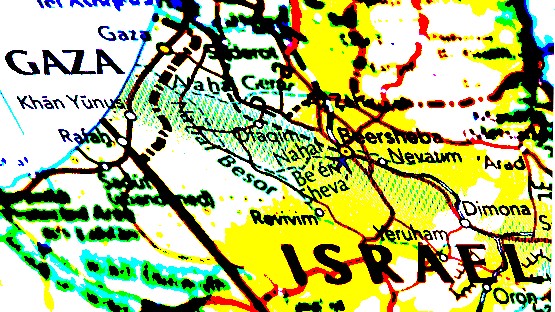
The New York Times reported Jan. 27 on three negotiating tracks that are being pursued simultaneously to end the Israel-Hamas war.
None of them seems likely to succeed at the moment, and Israel is not directly involved in two of them. Changes on the battlefield or in Israeli public opinion might alter the situation for the better, but changes in the region threaten to do the opposite.
Track 1 is a Hamas hostage release in exchange for a time-limited cease-fire and Israel’s release of Palestinian prisoners. Hamas is demanding a permanent cease-fire, not simply a pause. A deal that includes the release of some hostages and some prisoners seems most likely. Pres. Biden has sent the CIA director, William Burns, to the Middle East to move the negotiations along.
Track 2 is an overhaul of the Palestinian Authority (PA) so as to make it a more efficient and less corrupt entity to rule in Gaza. Mahmoud Abbas, the 88-year-old longtime PA leader, wants to name his own successor. That idea won’t float with the US or the Arab states. There is also discussion of having a multinational force take charge of Gaza’s postwar security, but no agreement has been reached about the composition of that force.
Track 3 is normalization of Saudi-Israel relations. Saudi Arabia’s price for such an agreement is high, probably too high: a security agreement with the US, US support of a Saudi nuclear power program, and US support for creation of a Palestinian state with Palestinian control of Gaza. A security treaty with Saudi Arabia probably lacks support in the US Senate, and the Netanyahu government is unalterably opposed to Palestinian statehood.
Track 1 currently seems like the best bet to gain approval from Israel and Hamas if only because it provides only a temporary halt to the war. But two developments in the past week threaten to sidetrack all three negotiations. One is a wider war stemming from a drone attack by an Iran-backed militia group that killed three US servicemen in Lebanon. It raises the possibility of a US strike inside Iran itself. Pres. Biden is reportedly being pressed by Republicans and others to go beyond attacking the militia group. That would give Republicans the war they have always wanted—and that even Donald Trump sought to avoid.
The other development is Israel’s charge that a dozen aid workers for the UN relief organization in Gaza—the United Nations Relief and Works Agency for Palestine Refugees (UNRWA)—helped Hamas in its Oct. 7 attack. Several countries, including the US (the largest donor by far at about $343 million), have stopped providing financial aid to the UN group. That withdrawal could essentially put the group out of business at a time when around six million Palestinian refugees depend on it.
Kenneth Roth, the longtime director of Human Rights Watch, had this comment: “I wish the US government were as quick to suspend military aid to Israel upon a ICJ [International Court of Justice] finding of plausible genocide . . . as it is to suspend aid” to UNRWA.
Mel Gurtov, syndicated by PeaceVoice, is Professor Emeritus of Political Science at Portland State University and blogs at In the Human Interest.









